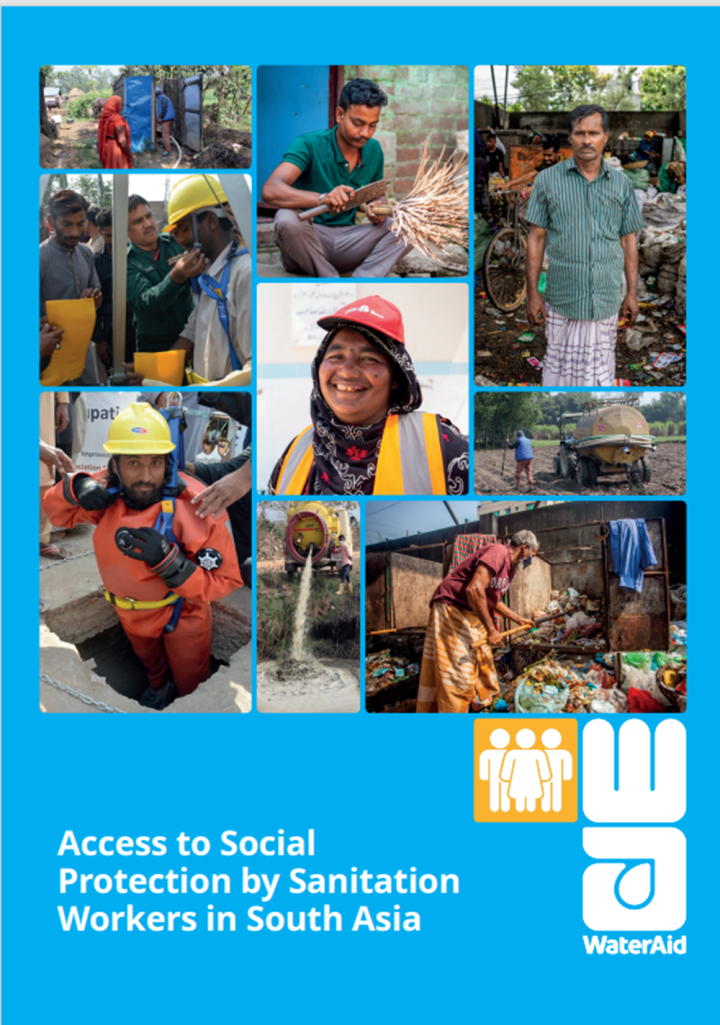Access to Social Protection by Sanitation Workers in South Asia Vanita Suneja, Jaison Thomas and Faysal Abbas, with contributions from Andrés Hueso González, Sterenn Philippe, Julie Fisher. Supported by Bill & Melinda Gates Foundation (2023)
Sanitation workers provide an essential public service to ensure cleanliness and safety along the sanitation chain. This is key to achieving the ambitious Sustainable Development Goal (SDG) 6, although poor working conditions, social and economic marginalization, high risk of infection and injury even death, mean it is often at the cost of their dignity, health and life. Strengthening social protection schemes for sanitation workers is important to reduce and compensate for the innate risks and impacts of their profession. WaterAid commissioned a study in Bangladesh, Nepal and Pakistan to assess the status of social protection schemes for sanitation workers. More specifically the study looked at access, coverage of these schemes as well as gaps and challenges faced by sanitation workers. The methodology used household surveys and key informant interviews with various stakeholders, including sanitation workers and government officials in all three countries. Based on the findings, study made recommendations for improving social protection for sanitation workers, addressing SDG target 1.3 on universal social protection systems and measures and SDG 8 on the promotion of decent work for all.
To know more, kindly go through the following documents:
• Synthesis Report on Access to Social Protection by Sanitation Workers in South Asia. This is a comprehensive
report brings together the three in-countries studies in all its dimensions using a comparative framework
• South Asia Policy brief: focuses on key recommendations on improving social protection for sanitation
workers based on the finding from the three in-country studies
• Bangladesh Policy brief: focuses on key recommendations for the government and other stakeholders based
on the study done in Bangladesh
• Nepal Policy brief: focuses on key recommendations for the government and other stakeholders based on
the study done in Nepal
• Pakistan Policy brief: focuses on key recommendations for the government and other stakeholders based on
the study done in Pakistan
Bibliographic information
Vanita Suneja, Jaison Thomas and Faysal Abbas, with contributions from Andrés Hueso González, Sterenn Philippe, Julie Fisher. Supported by Bill & Melinda Gates Foundation (2023). Access to Social Protection by Sanitation Workers in South Asia WaterAid
Filter / Tags
Recommended by SuSanA (other than SuSanA publications)Factsheets and policy briefsEnglishImport to Sanitation Workers PlatformLegal and regulatory frameworksSocial securityLegal and regulatory frameworksSocial security
External links
Improving access to social protection for sanitation workers in South Asia
Improving social protection for sanitation workers in South Asia- Policy Brief
Downloads
Access to Social Protection by Sanitation Workers in South Asia
Type: application/pdf
Size: 6.33 MB

